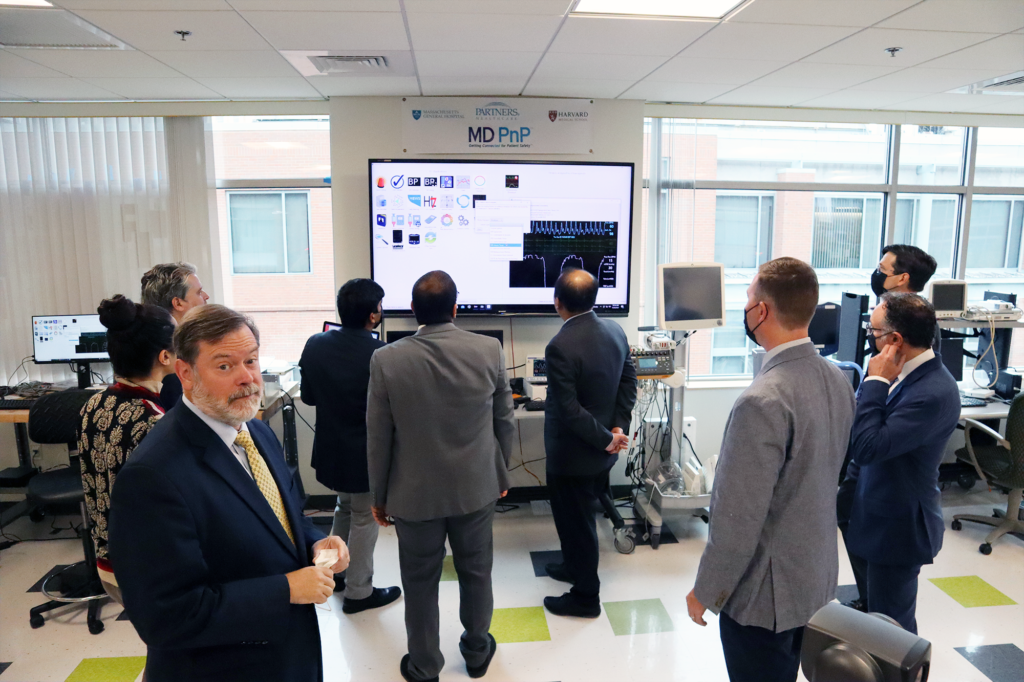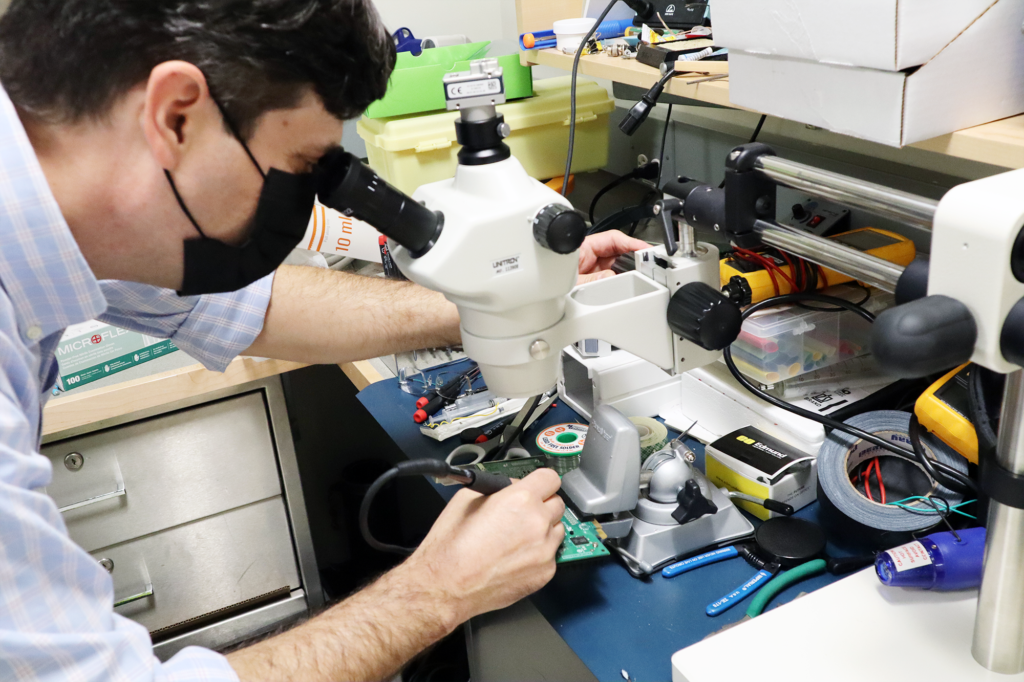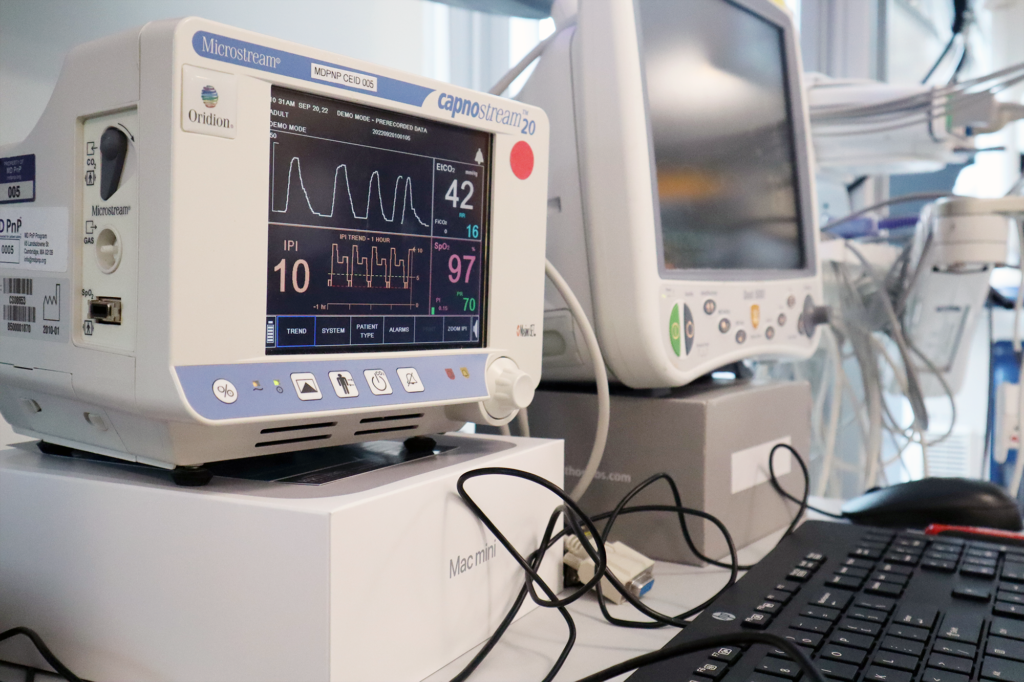Get Engaged
Work With Us

Become a Member of the MD PnP Community
Community-building is an important part of our work because healthcare transformation cannot occur in silos.
In May 2024 we aligned our membership structure with the new Collaborative Community on Smart and Autonomous Medical Systems (SaAMS CC). Please see that page on our web site for more information.

Collaborate with our Research Team
The MD PnP research team collaborates with academic, gov, and industry researchers working on system architecture, communication, security, simulation, and health IT infrastructure related to medical devices and systems, with a focus on Smart and Autonomous Medical Systems. Contact us if you would like to collaborate on a specific project or research grant.
Take Advantage of Resources and Services
Our Interoperability & Cybersecurity Lab in Cambridge is a collaborative space providing an environment of computing and medical device resources to support project scoping, prototyping, and verification and validation testing. MD PnP researchers share their expertise through collaborative projects, publications, presentations, contributions to consensus standards, and extensive material available on this website. We work with a variety of companies to provide system risk assessment and safety and performance testing.
Contact us if you would like to request content from our researchers or access to our lab. Lab and team subject matter experts (engineering and clinical) can be accessed through several mechanisms, such as including a sub award in your gov research grant, through a jointly developed SOW, selecting from a menu of Lab services (provided on request), or through direct project support.
How you can help
Help Facilitate the Adoption of Interoperability and Open Health Platforms (OHPs)
Clinicians can contribute clinical scenarios (or “use cases”) to ensure that new interoperability standards and technologies will enable meaningful clinical solutions. Diversity of use cases increases the likelihood of effective and generalizable solutions.
Engineers can analyze clinical use cases to generate functional specifications, assess current standards to perform “gap analyses”, and evaluate proposed technologies. Diverse engineering expertise is essential.
Healthcare delivery organizations can specify performance requirements, and require adherence to medical device interoperability language in vendor contracts, adopting the MD FIRE sample language now available and continuing to refine it. Widespread adoption of interoperability will happen only when there is recognized consumer demand.
Regulatory agencies can facilitate regulatory clearance of interoperable medical devices, creating new regulatory paradigms where needed.
Medical device manufacturers can participate in the development and adoption of interoperability standards, work with the FDA on the regulatory pathway, and partner with the MD PnP Program to develop a shared interoperability testing and use case demonstration environment.
Interoperability-promoting organizations can support revision of existing standards to meet clinical requirements, collaborate on clinical use case implementations in the MD PnP Lab, and ensure that through collaboration we shepherd the adoption of medical device interoperability to empower innovation in the safety and efficiency of health care.
